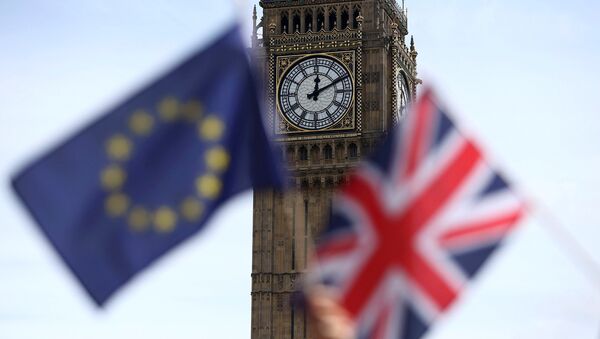On Monday London-based law firm Mishcon de Reya, acting on behalf of a group of business people and academics, sought assurance from the UK government that it will consult parliament before triggering Article 50, the formal process of leaving the EU.
The lawyers argue that it would be unconstitutional for the government to begin the process of leaving the EU without a full debate and vote in the UK's parliament.
They say that constitutionally, Brexit requires parliament to pass a new piece of legislation that would override the 1972 European Communities Act which defines UK membership of the EU.
Philip Moser QC, the joint Head of Monckton Chambers and a leading authority on European Law, told Radio Sputnik that the unprecedented situation created by Brexit presents many legal challenges.
"The Prime Minister is saying that he will use the treaty-making power of the crown, the royal prerogative, which is what we use to make treaties, and that doesn't require parliament. But the argument against this view is once you trigger Article 50, there's no way back, we're on a one-way street towards exit from the EU and if there's no agreement by the other states to extend then there's automatic exit after two years," Moser explained.
"It's a huge step to take without an act of parliament, and that's why the government has announced this morning that parliament will debate the Article 50 notice."
"Your listeners will no doubt remember when we debated whether or not to go to war in Syria in 2013. Going to war is also an exercise of the prerogative, but the Prime Minister sought a resolution of the House of Commons before doing so. As it happens, it failed and we didn't go into Syria."
"The difficulty with this is an interesting democratic dilemma. We've had a plebiscite, that's voted for out, we've got a parliament that has a majority of members for in," he said.
Moser said that parliament would find it politically very difficult to overrule a popular vote, and a second referendum in which voters decided to overturn their earlier decision would probably be necessary to achieve a mandate to do so.
Moser said that the UK government is resisting calls from other EU countries to leave quickly, and is rather taking its time over the process.
"Once we left, we'd have to apply from the beginning, under Article 49. Everything that currently exists would be off the table," he said.
"There's no time limit, either under national or EU law, we don't have to trigger Article 50 at any particular time. It's going to be up to the Prime Minister probably, having consulted parliament."






